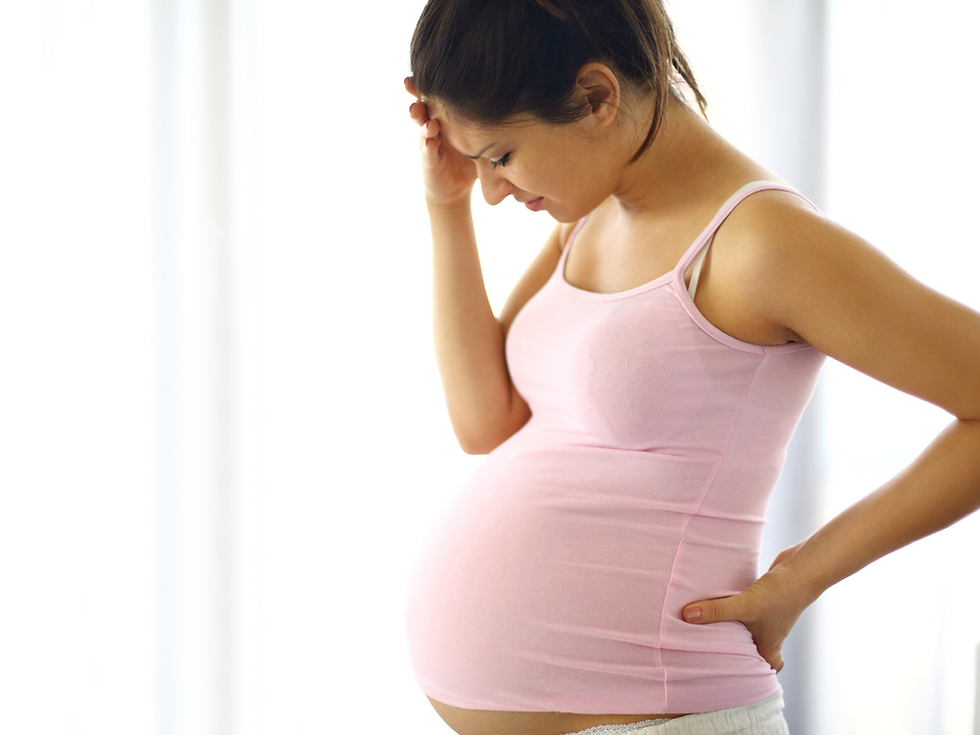What is Ectopic Pregnancy: Types, Risk Factors, and Preventions
- Dr Prachi Sarin Sethi

- Aug 23, 2025
- 3 min read
An ectopic pregnancy is a serious medical condition that requires immediate attention. In a normal pregnancy, a fertilized egg implants and grows inside the uterus. However, in an ectopic pregnancy, the embryo attaches outside the uterine cavity—most commonly in the fallopian tubes. Since the fallopian tubes cannot support the growth of a developing embryo, this condition poses health risks for the mother and cannot result in a viable pregnancy.
Early diagnosis and timely treatment are critical for preventing complications. If you suspect symptoms, consulting an experienced gynaecologist in Gurgaon is the safest step to ensure proper evaluation and care.

What is an Ectopic Pregnancy?
An ectopic pregnancy occurs when a fertilized egg implants outside the uterus. About 90% of ectopic pregnancies are tubal pregnancies, where implantation happens inside one of the fallopian tubes. Rarely, implantation may occur in the ovary, abdominal cavity, or cervix.
Since these sites cannot provide the right environment for a developing embryo, the pregnancy cannot proceed normally and may cause life-threatening complications if left untreated.
Types of Ectopic Pregnancy
There are different types depending on where the implantation occurs:
Tubal Pregnancy – The most common type, where the embryo implants in the fallopian tube.
Ovarian Pregnancy – The embryo implants in the ovary itself.
Cervical Pregnancy – Implantation occurs in the cervix, the opening to the uterus.
Abdominal Pregnancy – Rare but possible, when the embryo attaches to organs within the abdominal cavity.
Symptoms of Ectopic Pregnancy
Early symptoms of ectopic pregnancy often resemble those of a normal pregnancy, making it difficult to identify without medical evaluation. However, warning signs may include:
Sharp or stabbing pelvic or abdominal pain, often localized to one side.
Vaginal spotting or bleeding, lighter or heavier than a normal period.
Shoulder pain caused by internal bleeding irritating the diaphragm.
Dizziness, fainting, or shock in severe cases of internal bleeding.
Any woman experiencing these symptoms should seek immediate medical attention from a qualified gynaecologist in Gurgaon.
Risk Factors for Ectopic Pregnancy
Although ectopic pregnancy can affect any woman, certain factors increase the likelihood of its occurrence:
Previous ectopic pregnancy – Having experienced it once raises future risk.
History of pelvic infections such as pelvic inflammatory disease (PID).
Tubal surgery or conditions that damage the fallopian tubes.
Fertility treatments such as IVF or assisted reproductive techniques.
Endometriosis, which can alter the pelvic anatomy.
Smoking, which affects reproductive health.
Maternal age above 35, which slightly increases risk.
Being aware of these risk factors helps in early detection and timely prevention strategies.
Diagnosis of Ectopic Pregnancy
An ectopic pregnancy is usually diagnosed through a combination of:
Medical history and symptom assessment.
Blood tests to measure hCG (pregnancy hormone) levels. Abnormal rise patterns can indicate ectopic pregnancy.
Ultrasound scan, particularly transvaginal ultrasound, to check for pregnancy location.
A skilled gynaecologist in Gurgaon will use these methods to confirm diagnosis and determine the best treatment approach.
Treatment Options
The treatment for ectopic pregnancy depends on its size, location, and the patient’s health condition.
Medication
Methotrexate is commonly used in early cases. It stops the growth of the embryo and allows the body to absorb the tissue naturally.
Surgical Management
Laparoscopic Surgery: The most common method to remove the ectopic pregnancy while preserving fertility if possible.
Emergency Surgery: In cases of rupture and internal bleeding, immediate surgery is required to save the patient’s life.
Can Ectopic Pregnancy Be Prevented?
Not all ectopic pregnancies can be prevented, but lowering risk factors and maintaining reproductive health can help. Preventive strategies include:
Early treatment of pelvic infections to avoid fallopian tube damage.
Avoiding smoking to improve reproductive health.
Regular check-ups with a trusted gynaecologist in Gurgaon, especially if you have a history of ectopic pregnancy or fertility issues.
Safe sexual practices to reduce the risk of sexually transmitted infections that can cause pelvic inflammation.
Importance of Timely Care
Delaying treatment of ectopic pregnancy can lead to rupture of the fallopian tube, severe internal bleeding, and life-threatening complications. Early medical attention not only ensures safety but also improves future fertility outcomes.
Women who have had an ectopic pregnancy can still conceive again in the future, but they require close monitoring and care during subsequent pregnancies.
Expert Care in Gurgaon
Dr. Prachi Sarin Sethi, Senior Consultant at Motherhood Hospital, Gurgaon and Viva Women Clinic, Gurgaon, provides specialized care for women facing high-risk pregnancies and gynaecological concerns. With expertise in advanced diagnostic tools and minimally invasive surgical techniques, she ensures that patients receive safe, effective, and compassionate care for conditions like ectopic pregnancy.
Final Thoughts
An ectopic pregnancy is a medical emergency that cannot be ignored. Recognizing symptoms early, understanding risk factors, and seeking guidance from an experienced gynaecologist in Gurgaon are essential for safeguarding a woman’s health and fertility.
If you or someone you know experiences signs of ectopic pregnancy, do not delay—seek immediate medical attention and expert care.








Comments